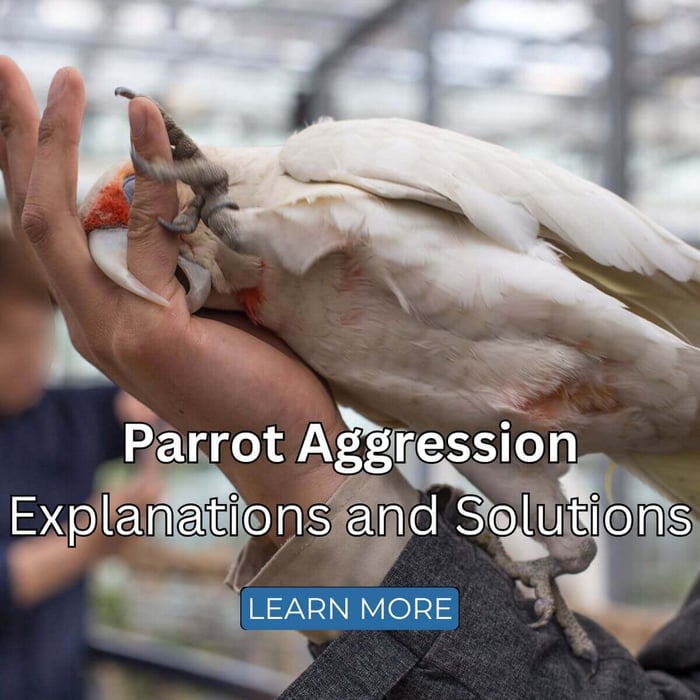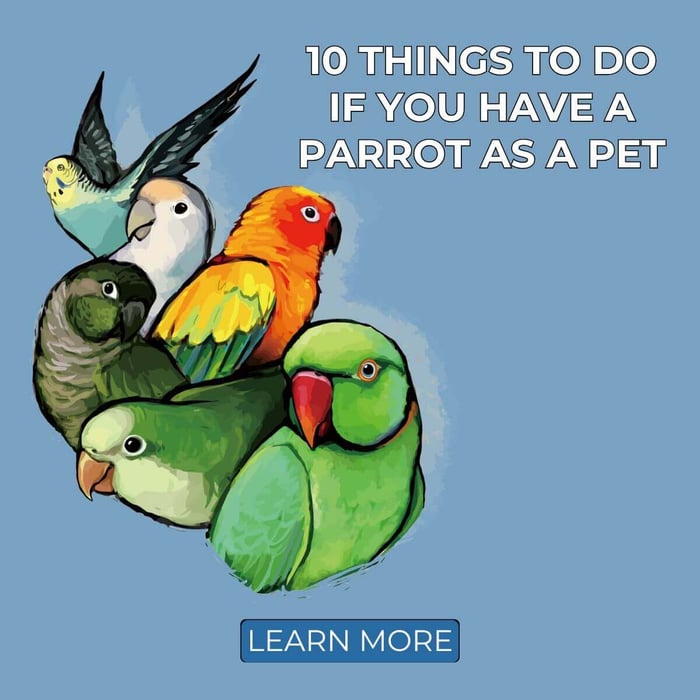Aspergillosis in Parrots - Causes & What to Do
Aspergillosis in parrots is a serious and potentially deadly disease, and while it isn't uncommon, it can often be prevented if you are vigilant about the health and environment of your bird. In this post, we'll take a deep dive into the causes, symptoms, and prevention of aspergillosis in parrots so you'll be better equipped to protect your feathered friend. Remember: prevention is better than cure, and knowing what to look out for can make a difference when it comes to your parrot's health.
PLEASE NOTE: If your parrot is showing signs of illness, it's crucial to contact your avian vet right away to schedule an appointment. After you've done that, you can continue reading to learn more. Not sure where to find a vet who specialises in birds? We've got a list of avian vets in the UK to help you out.
What Is Aspergillosis?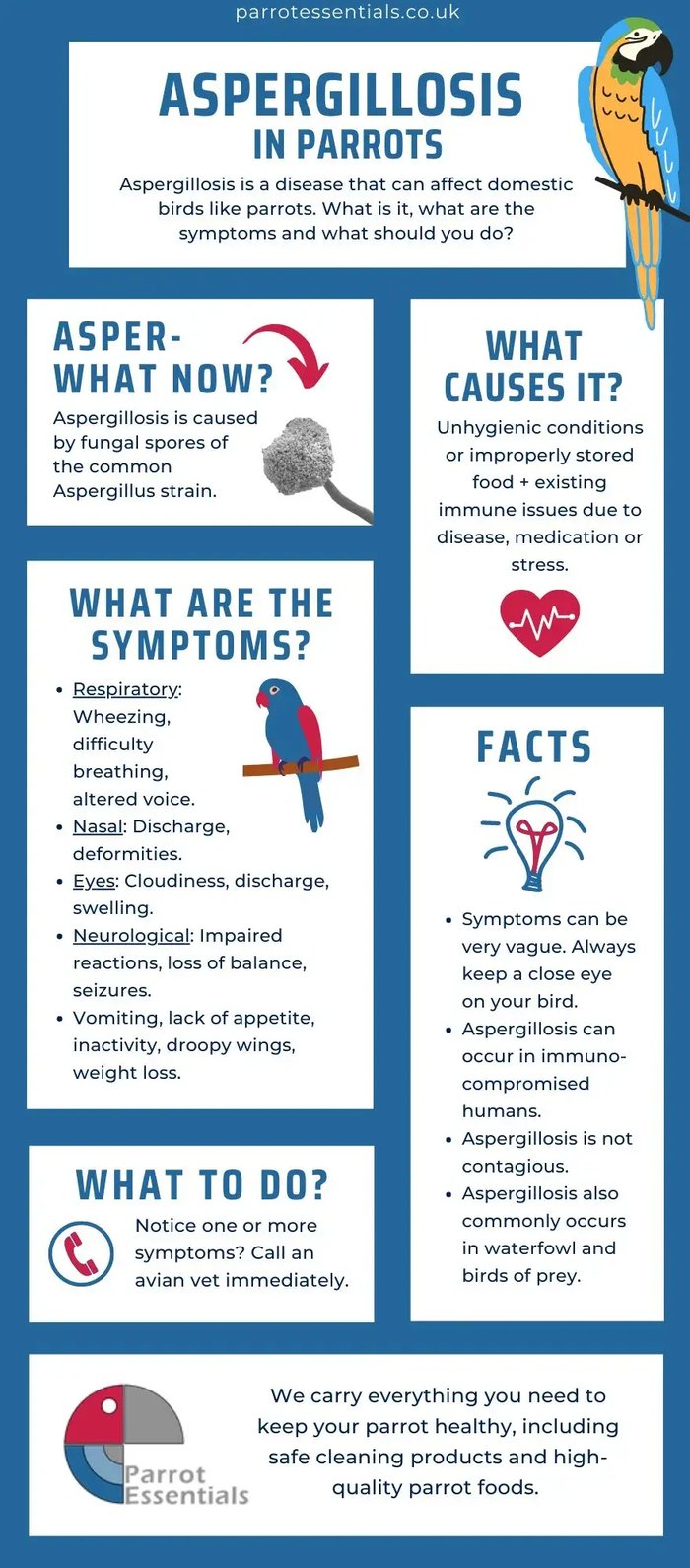
Aspergillosis is a fungal disease caused by spores from a common genus of fungi known as Aspergillus. This disease is non-contagious, meaning it cannot be transmitted directly from one bird to another, but it remains one of the leading causes of death in captive birds, including parrots. In addition to parrots, Aspergillus can also affect ducks, raptors, and other species.
Some parrots, especially African Greys, are more susceptible to developing aspergillosis (Jones & Orosz, 2000). While the disease primarily targets the respiratory system, it can also impact other parts of the bird's body, causing widespread damage.
There are two main types of aspergillosis: acute and chronic. Acute aspergillosis occurs when a bird inhales or ingests a large number of fungal spores at once, which overwhelms its immune system. Chronic aspergillosis, on the other hand, often develops in birds with a compromised immune system, and it tends to progress over a longer period (Beernaert et al., 2010).
If a bird's immune system fails to fight off the Aspergillus spores, plaque and necrosis can build up in the respiratory system, leading to irreversible damage.
Did you know? Aspergillosis can also occur in humans, although it is rare. Fortunately, the strain that affects birds is not contagious to humans, and the disease typically only affects individuals with existing lung conditions or weakened immune systems.
What Causes Aspergillosis in Parrots?
The most common way parrots contract aspergillosis is through exposure to airborne fungal spores. These spores are present in many environments, but the risk increases significantly in certain conditions. Birds with compromised immune systems due to illness or stress are particularly vulnerable.
One of the most significant contributors to aspergillosis in parrots is an unsanitary living environment. A warm, poorly ventilated bird room can encourage the growth of fungi, increasing the likelihood of Aspergillus spores being inhaled. Regular cleaning of your parrot's cage and living area is essential to reduce the risk of this and other health issues. The same applies to their food and water dishes, which should be cleaned regularly to prevent contamination.
Food storage is another crucial factor. If food is stored improperly or becomes damp, it can develop mould, which is a breeding ground for Aspergillus spores. Always ensure that your parrot's food is kept dry, and if you buy in bulk, consider freezing the majority of it to avoid potential mould growth. Be sure to remove any uneaten food after a few hours, as this can quickly spoil and become a health risk.
Aspergillus and Peanuts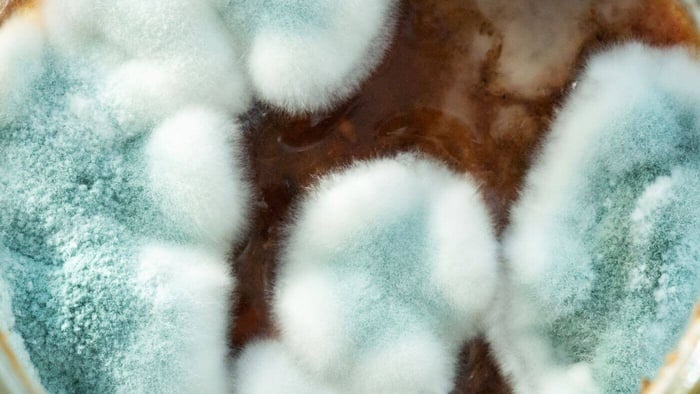
A particular food that warrants attention when it comes to aspergillosis is peanuts. These nuts are known to sometimes contain aflatoxins, which are toxic compounds produced by Aspergillus spores. These toxins can be harmful to your parrot's health, so it's best to be cautious with peanuts. However, if you choose to feed your parrot peanuts, make sure they are of high quality and stored properly. Also, peanuts should only be offered in moderation due to their high-fat content.
Symptoms of Aspergillosis in Parrots
The symptoms of aspergillosis can vary greatly, as the disease can affect many parts of the bird's body. This means that symptoms can be vague and may appear in several different forms, so it's important to remain vigilant. If your parrot exhibits any of the following symptoms, it could be a sign that it is suffering from aspergillosis:
- Respiratory Issues: Wheezing, difficulty breathing, or changes in vocalizations (such as hoarseness or laboured breathing) are some of the most common signs.
- Nasal Problems: Discharge from the nostrils or even deformity of the beak or nostrils can indicate a respiratory issue.
- Eye Symptoms: Cloudiness, swelling, or discharge from the eyes.
- Neurological Symptoms: Lack of coordination, poor muscle control (ataxia), or seizures.
- Digestive Issues: Vomiting or changes in droppings can also be linked to aspergillosis.
- General Behavioural Changes: Loss of appetite, lethargy, drooping wings, and weight loss are all warning signs of potential illness.
A healthy parrot will generally be bright-eyed, active, and vocal. Any sudden changes in behaviour or appearance should be taken seriously.
What Should You Do if Your Parrot Shows Symptoms?
If you notice any of the symptoms listed above, it's critical to take immediate action. Contact your avian vet and describe the symptoms your parrot is experiencing. Your vet will advise whether you should bring your bird in for an examination.
Diagnosing aspergillosis in parrots can be challenging, as the symptoms can often mimic those of other diseases. To confirm a diagnosis, your vet may perform a physical examination, take X-rays, conduct blood tests, or collect samples from the bird's respiratory system. Once aspergillosis is confirmed, your vet will likely prescribe antifungal medication to treat the infection.
In addition to medication, you may be given specific instructions to help manage the symptoms, such as providing your parrot with head pads or adjusting its diet. It's essential to follow your vet's instructions carefully and attend any follow-up appointments, even if your parrot seems to improve.
How to Prevent Aspergillosis in Parrots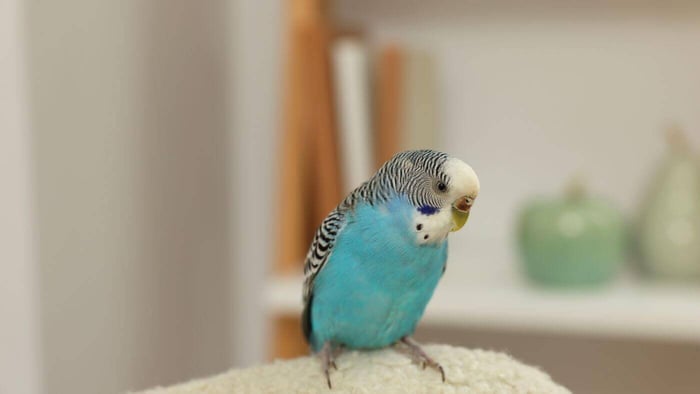
As with most avian diseases, prevention is key when it comes to aspergillosis. Here are a few simple steps you can take to reduce the risk:
- Maintain a Clean Environment: Regularly clean your parrot's cage and living space, and ensure that the room is well-ventilated to prevent mould growth.
- Store Food Properly: Always store food in dry, cool conditions and remove any uneaten food promptly.
- Reduce Stress: Stress can weaken your parrot's immune system, making it more susceptible to diseases like aspergillosis. Keep your bird's environment calm and avoid exposing it to sudden changes or loud noises.
- Ensure a Balanced Diet: A healthy, balanced diet will help support your parrot's immune system. Consider providing a mix of fresh fruits, vegetables, and high-quality pellets.
- Limit Exposure to Spores: If you live in an area with high humidity or lots of mould, try to limit your parrot's exposure to areas where Aspergillus spores are likely to be present.
Conclusion
Aspergillosis is a dangerous disease that can be fatal if not caught early, but with proper care and attention, you can significantly reduce your parrot's risk. Regular cleaning, proper food storage, and a healthy living environment are key to preventing this disease. Always stay vigilant and seek veterinary advice if your parrot shows any signs of illness. Early detection and treatment are crucial for a positive outcome.
Remember, prevention is always better than cure, and by keeping your parrot's environment clean and providing proper care, you can help protect it from aspergillosis and other health issues.



